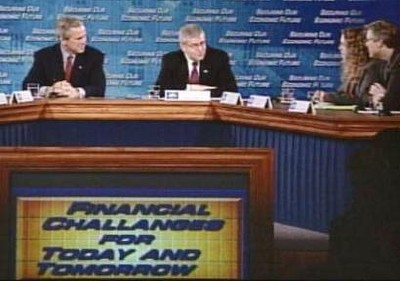In Wednesday’s Washington Post charter school critic Amy Stuart Wells writes what she hopes will be the obituary for charter schools entitled: Charter Schools: Lessons in Limits. It’s really more of a lesson in straw-men but a couple of things in particular jump out. [For another view, see this post on A Constrained Vision (via Jacobs).]
First, Wells writes that:
I have seen some excellent charter schools, with well-trained educators and solid curriculums. They tend to be in more middle-class communities, where private resources augment the low level of public funding that charter schools receive. I have also seen charter schools run by people who collect the public funding while providing minimal services for low-income students who have few other options. And I have seen a lot of the charter schools that fall somewhere in between — not stellar, not awful, but no better than the public schools nearby.
Huh? While the entire paragraph could use some documentation, one assertion in particular stands out. The best charters tend to be suburban ones? What’s the evidence for that, (holding constant prior achievement of students, of course)? With a noteworthy exception, charters are disproportionately located in low-income communities. That’s actually an example of the market working; there just isn’t much of a market for charter schools in places where the public schools are doing reasonably well — the suburbs. Of course, to the consternation of many, the opposite is also true. Besides, in a growing number of urban communities, for instance, Los Angeles, Washington, and Boston the top open-enrollment high schools are charter schools.
Wells also chocks up the support for charters to conservative think tanks and free-market types. This tired canard has a debilitating effect on the left’s ability to coherently argue against ideas like vouchers or even charters. First, it ignores the substantial support that existed, and in many cases still exists, on the left for choice-based reforms. In the late 1960s and early 1970s it wasn’t the right pushing choice, it was the left.
Moreover, this line of argument ignores the substantial support for choice-based reforms that now exists in the minority community. Edu Commentary would argue that the most lasting impact of Politics, Markets, and America’s Schools, the seminal pro-choice work by Chubb and Moe, was less the ideas in the book itself than the reframing of the choice issue that resulted from Brookings publishing the book in the first place. That helped launch the current wave of minority organizing around school choice. To chock all that support up to “conservative think tanks” is na"ive at best and patronizing at worst.
Finally, Wells also notes that charters will fall prey to the broader disillusionment with free-market ideas now gripping the country. Again, huh? We just re-elected a president who made no secret of his desire to privatize and use market forces to reform our most widely used social insurance program and is now trying to do just that. It’s entirely possible that such disillusionment is sweeping the halls of Teachers’ College, but it’s not a national trend yet.
Re the studies that give Wells such certitude, more on them here, and this useful and apparently ignored disclaimer from one here.
Edu Commentary agrees with Wells when she concludes that, “free markets in education, like free markets generally, do not serve poor children well.” But that’s less an indictment of charter schooling than a call for better quality charter school authorizing. After all, monopolies don’t serve anyone very well either which is why the most promising reform policies are found somewhere between purely market-based ideas and the system we have now.
The almost blind-adherence to market-based education reforms on the right is certainly frustrating, but as this op-ed shows, the right doesn’t have the monopoly on predictable ideological rigidity.




